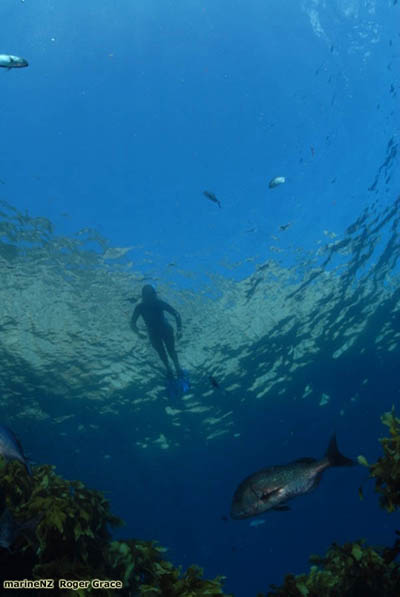Ok you are busy forming a vision of what you want to do for the sea. First up, we have a strategic challenge to deal with:
1) Do we wait for a marine protection forum process for our Region?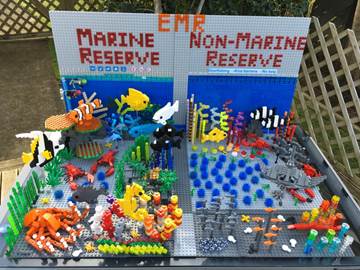 EMR project Tim Balo Taranaki
EMR project Tim Balo Taranaki
2) Do we prepare information and proposals for a future MPA forum process?
3) Do we form a group to work with our community to prepare a Marine Reserve Application and apply for a Marine Reserve under the current Marine Reserves Act?
No one can advise you on which direction to focus your energy. Here in New Zealand we are going through the long and tricky process of creating a viable network of fully protected marine areas. There has been progress offshore, but in coastal New Zealand waters we have slowed. So here is our recommendation:
Do formulate your vision, it is urgently needed and it is your right and responsibility as a New Zealander. No one is too young or too old to contribute.
Settle on a course of action and get going. It may be just your own eduction for now, or community advocacy projects that increase awareness and involve other people. A good example of this is what is happening around the country with EMR participants.
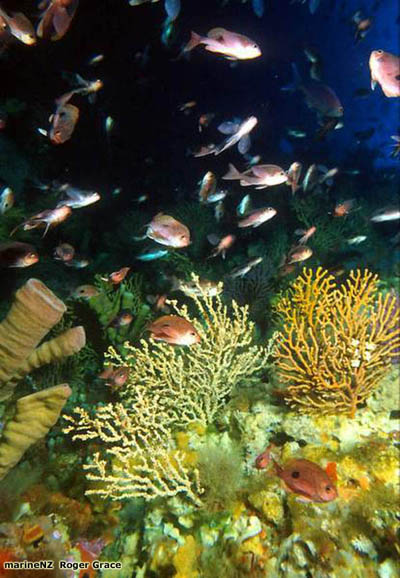 A deep reef scene at the Three Kings IslandsHere is a suggestion for resolving the strategic direction question. Look at options 1-3 above: what do they all have in common? They all involve setting a goal, gathering information to guide the design of marine reserves, engaging with community to seek their views and building support for the vision. Finally they all involve preparing a detailed proposal which fulfills legislative and consultation requirements.
A deep reef scene at the Three Kings IslandsHere is a suggestion for resolving the strategic direction question. Look at options 1-3 above: what do they all have in common? They all involve setting a goal, gathering information to guide the design of marine reserves, engaging with community to seek their views and building support for the vision. Finally they all involve preparing a detailed proposal which fulfills legislative and consultation requirements.
Since you will not know if a Regional or Sub-regional Marine Protection Forum is going to take place in your Region until the future unfolds, we suggest you go the way of preparing marine reserve proposals for your area or Region. Your proposal process and the community engagement associated with it will be invaluable as input to any Marine Protection Forum that is run in the future. And if there is no Regional Forum then it can be pursued under the existing Marine Reserves Act.
In the next section we will point to resources that will provided background on Marine Protected Area Forums and also the latest developments with an RMA approach, and then the remainder of this section of the How to Kit will be focused on developing marine reserve proposals.
Before you start a marine reserve project review these topics
Marine Reserves are widely acknowledged as successful in protecting and restoring marine species and habitats. The concept of a viable and sustainable network of marine reserves as described by Dr Bill Ballantine is well supported by marine ecological science. School children understand the concept and want more marine reserves after a simple introduction. You however will find once you start to engage with community and Government officials that creating one is far from straight forward. What will always happen once you begin the journey is that people will want to talk to you about managing fish via the Quota Management System, local fisheries management, customary management, and finally developing a Marine Protected Area Planning Forum or Spatial Planning process.
The crucial point here is that people have every right to focused on management arrangements other than marine reserves. All the above mentioned management approaches can, if well conceived, perform a useful management purpose. Many we may want to fully support. It is vital to appreciate that marine reserves don't replace these management approaches, instead marine reserves support all forms of management. A marine proposal you develop now will also be useful and supportive to any future MPA planning process that gets underway.
Our suggestion is that you familiarise yourself with the bodies of information surrounding these other methods and processes as they will that interact with your marine proposal project. Once you are thoroughly familiar with these concepts it is time to get cracking on your project.
Marine Protected Area Forums Case Studies
A really interesting case study developing in the Bay of Plenty
Motiti Rohe Moana Customary Management and development of RMA approach
Our Library collection topics to review
Legislation and Policy a collection of relevant background documents on the various Acts and Policies which affect work in marine conservation in New Zealand
Traditional Management - a collection of writings relevant to customary management and matauranga maori (also international references)
Your Marine Reserve Project Strategic Overview
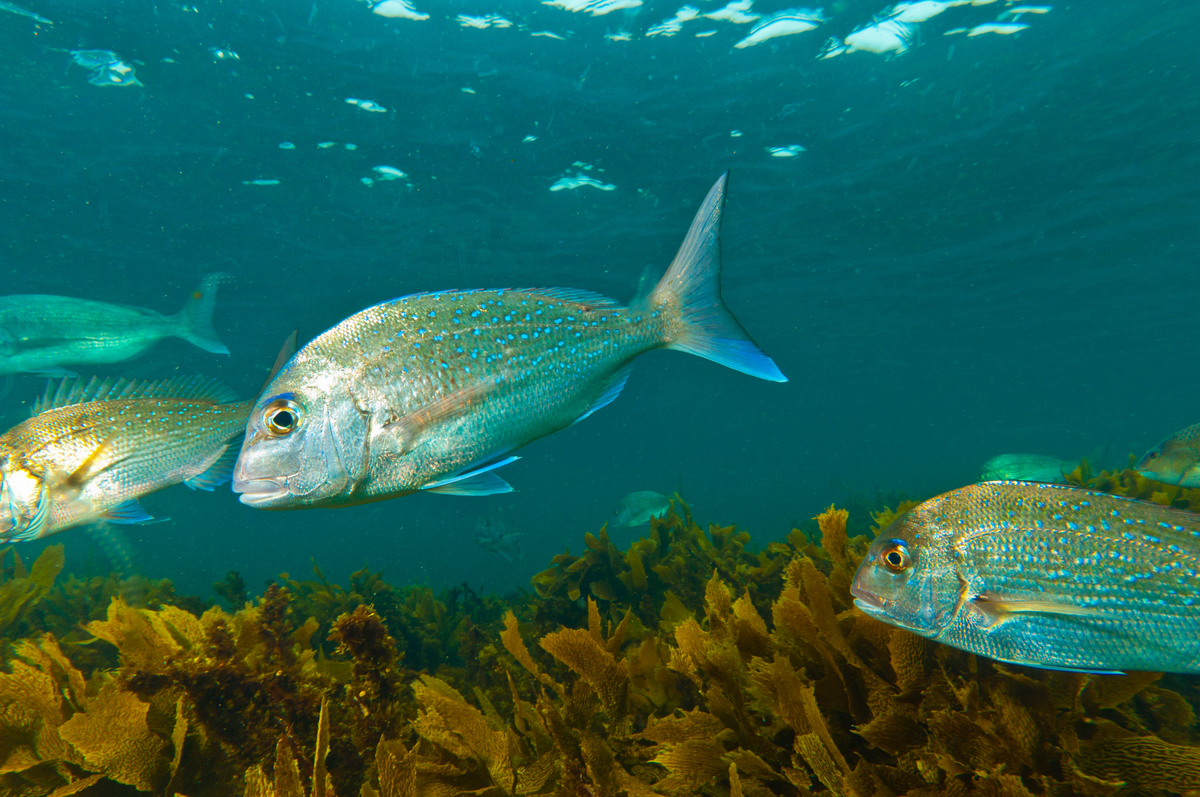 Photo of snapper by Darryl TorcklerWhere to begin? It is a good idea to spend some time to get familiar with past marine reserve proposals and applications. At the bottom of this page you will see a listing of marine reserve discussion documents, proposals and the formal applications. It will take some time but it is worth working through them to see how the information is assembled and what is required.
Photo of snapper by Darryl TorcklerWhere to begin? It is a good idea to spend some time to get familiar with past marine reserve proposals and applications. At the bottom of this page you will see a listing of marine reserve discussion documents, proposals and the formal applications. It will take some time but it is worth working through them to see how the information is assembled and what is required.
Also of great use is the 2002 DOC Handbook for Applicants, particularly the introductory section which sets the scene of what you need to do. In 2002 DOC was actively engaged and had partnered with a number of communities supporting proposal projects. Sadly this is no longer the case as a result of the change in Government approach that came with the Marine Protected Area Policy in 2005. DOC has played a support role since 2005 for existing community initiated marine protection forums. The 2002 Handbook does however remain a very useful reference as the Marine Reserves Act has not changed in this time.
It is also a good idea to browse through our Case Studies of successful marine reserves. In these links and archives of documents you will find many good tips on how you approach your project. It may be in the form of what information gathering is most relevant to your project or it may be the examples of how consultation and engagement with communities was carried out.
There are two main stages in a marine reserve campaign.
The first stage (‘pre-statutory’) involves developing a proposal to the point where you are able to prepare a formal application document.
The second (‘statutory’) stage involves specific statutory requirements surrounding the presentation of your formal application to the Director-General of Conservation.
Once you have completed these two stages, the Department of Conservation supervises the remaining statutory steps and will manage the reserve once established.
The campaign process may take several years and a considerable amount of effort, and without a doubt the bulk of your work will be finished before you begin to write a formal marine reserve application. As shown on the marine reserve creation flowchart, the main aspects of your work are as follows:
- Forming a group
- Initial consultation work
- Information gathering
- Release of a discussion document about marine conservation in the area
- Selection of potential reserve sites and detailed investigation of these sites
- Continuing consultation
- Release of a draft marine reserve proposal for public comment
- Continuing investigation, boundary resolution, identification of affected parties and any restrictions on the proposed reserve area
- Writing a formal application document, including management recommendations
- Publicly notifying the application; notifying all stakeholders and affected parties
- Receiving and responding to objections and submissions in support on the formal application
- Possible involvement in the management of the marine reserve once established
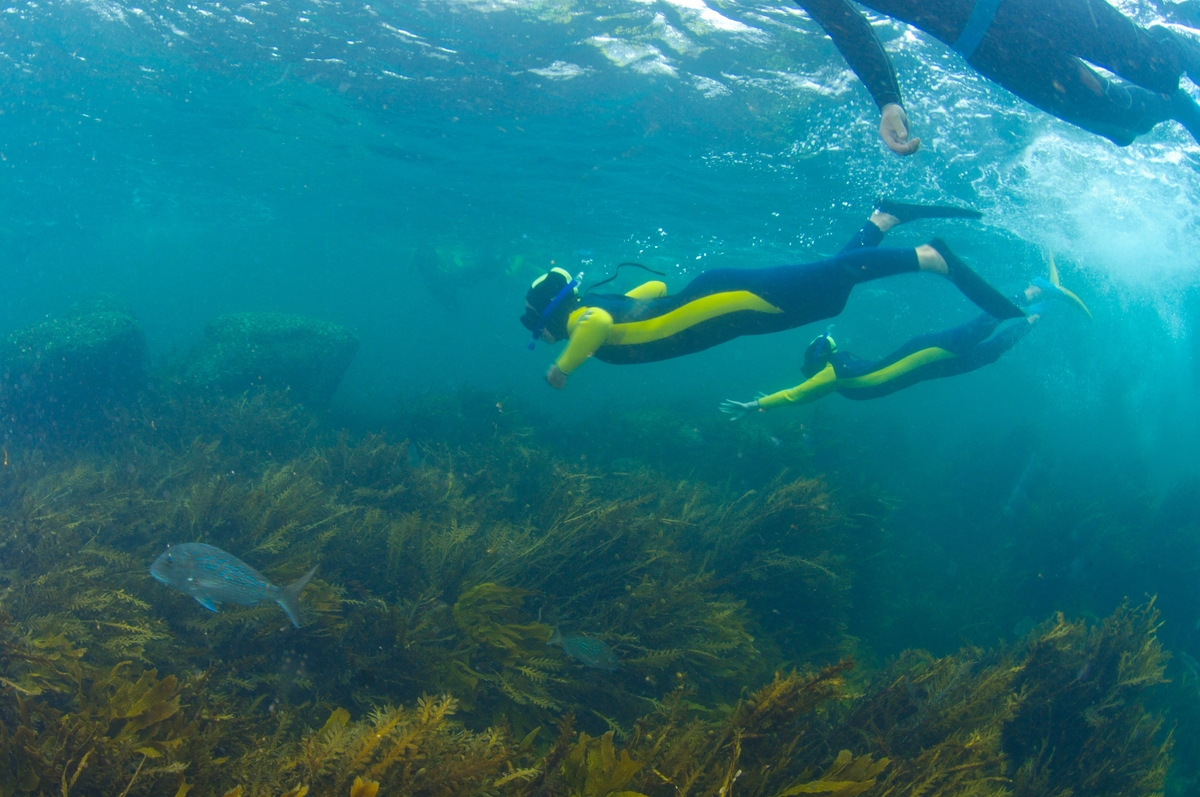 EMR snorkelers at the Leigh Marine Reserve, photo by Darryl TorcklerThis may look like a daunting task indeed, but what we need to remember is that marine reserves and the need for them is a very simple idea, 'we need places where we don't take or disturb marine life'. It is our job to try and make this process as simple as possible focusing on the positive intent. Also it is perfectly reasonable to engage others in the community to help as well as Government Departments, as the benefits affect all of us.
EMR snorkelers at the Leigh Marine Reserve, photo by Darryl TorcklerThis may look like a daunting task indeed, but what we need to remember is that marine reserves and the need for them is a very simple idea, 'we need places where we don't take or disturb marine life'. It is our job to try and make this process as simple as possible focusing on the positive intent. Also it is perfectly reasonable to engage others in the community to help as well as Government Departments, as the benefits affect all of us.
This work has been done, and done successfully, by an increasingly diverse collection of community groups and conservation organizations in New Zealand. It is possible. What you must not do is underestimate the time or commitment that a successful campaign demands. The need for a marine reserve network in New Zealand is undoubtedly urgent; the development of a sound base of public support for a reserve in your area is absolutely crucial, and cannot be rushed. Be prepared for frustration and tedium, but keep the end in view.
Some goals you should keep in mind:
- to amass enough information to write a thorough and persuasive formal application document;
- to ensure that you have chosen a reserve site that will best satisfy the needs of the developing marine reserve network and of the local community;
- to ensure that your consultation work has resulted in widespread public understanding of, and support for, the proposed marine reserve;
- to demonstrate that you have done everything in your power to satisfy the legislative criteria for marine reserve establishment and to minimize potential objection to the reserve;
- to make a real difference to the marine environment, and a very real contribution in many senses to your local community.
Talk to past applicants, to the Department of Conservation and to conservation organizations like Forest and Bird for their ideas on future campaigns.
The following pages in this section will continue to fill in the details and connect you with the resources as you move through the process
Preparing your public survey and discussion document
And see our Library section on Marine Reserve Design, lots of important practical information there. Some additional how to topics are continued in the Handy Hints section of this web site.
Collection of Marine Reserve Application Resources
Collection of Marine Reserve Discussion and Proposal Resources

